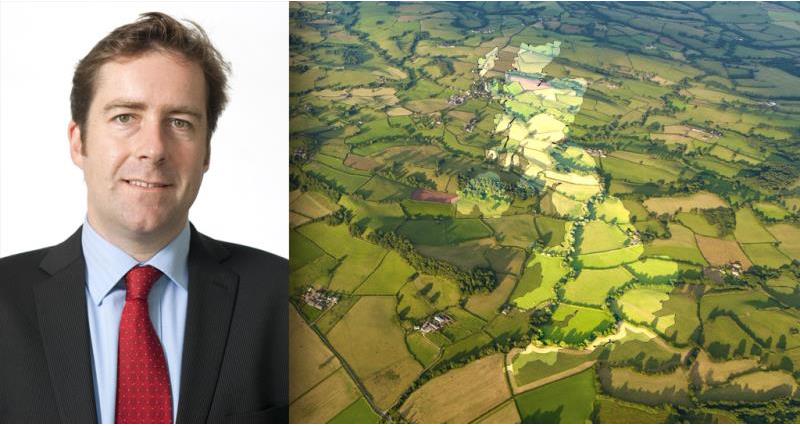He writes:
‘We must get the best possible access to markets in the rest of Europe. Although we will not be a member of the EU, it will still be our major trading partner for the foreseeable future.’
The EU is the UK’s biggest agri-food trading partner, with agricultural, food and drink exports from the UK to the EU totalling £8.9 billion. This market accounts for nearly three quarters of our food exports. For some products, those nearby markets have become vital – some 38% of all lamb produced in the UK goes to Europe with France alone purchasing more than £200m worth of UK lamb in 2014.
Undoubtedly, we’ll see opportunities emerge elsewhere in the world, but it won’t change that fact that we have the largest single market in the world on our doorstep.
‘Currently we benefit from more than 50 trade agreements with countries in the rest of the world. We will continue to need these kind of arrangements in future, whether this means negotiating new deals or not.’
The EU has a number of international trade agreements in place around the world.
Collectively, these facilitate market access and have helped the value of UK agri-food exports beyond the EU to more than double in the past decade. Putting a similar framework of trade deals in place for the UK will be critical to not only retaining these markets but also improving our access to key markets elsewhere in the world.
‘A key question we had to the Leave camp, and on which we never received a clear answer, was what kind of access would an independent UK give to imports from the rest of the world? Our requirement is that we are not open to imports which are produced to lower standards.’
Few of us need reminding that the UK is far from self-sufficient and that imports are a characteristic of our agri-food supply chains.
The rules around imports are going to be critical for our industry. There will be much to determine around customs procedures, tariff rates and the health status issues relating to the risk of disease or contamination (Sanitary and Phytosanitary rules to use the international trade jargon). It’s important to get these right because they impact our competitiveness. Ultimately, if government restricts a practice or technique in domestic agriculture, then it should follow that the same restrictions are similarly applied to imports. Regardless, I believe that our sector will have a role to play in explaining to consumers the qualities of our production through schemes like farm assurance.
‘During the referendum we have repeatedly drawn attention to our sector’s need for access to migrant labour, both seasonal and full-time. Outside the EU we will need visa-controlled access to labour from anywhere in the world.’
Whether it’s working in fields, poultry sheds, vegetable packhouses or food processing sites, the reality is that you will find a proportion of overseas workers that are integral to delivering great British food, flowers and plants.
This has been particularly driven by the increasing difficulty of recruiting a domestic workforce in recent years and the seasonal nature of agricultural and horticultural production.
‘Leaving the EU gives us the opportunity to build a new domestic agricultural policy which is adapted to our needs, easy to understand and simple to administer. We will be looking for guarantees that the support given to our farmers is on a par with that given to farmers in the EU, who will still be our principal competitors.’
As members of the EU, UK farmers have worked under the framework of the Common Agricultural Policy. The CAP accounts for circa 39% of the EU budget and this is why agriculture will be one of the most impacted sectors because of Brexit.
Farm policy is an area where there are a range of different models to be looked at and I anticipate lots of discussion around these when we head around the country in the coming weeks.
‘We will want to see a rural development policy which focuses on enhancing our competitiveness. Britain has been a pioneer in agri-environmental schemes, but these are currently running out of steam - in part because of over prescriptive EU rules. We must take this opportunity to devise better schemes.’
Environment and competitiveness have both been delivered through the CAP’s rural development policy in the past. Personally, I think both are important issues and I’d expect them to feature prominently in future. But as with a domestic agricultural policy, we’ve got a unique opportunity to think differently.
‘If there was one message which came over loud and clear in all our farmer meetings it was frustration with European regulation and its handling of product approvals, due to an over-politicised approach and excessive use of the precautionary principle. We now have a golden opportunity to ensure our arrangements are in future proportionate and based on sound science.’
I’m sure we’ve all got our own examples of sentiment over science. For me, the recent examples of the decision on neonicotinoids and the question marks over the long term access to glyphosate continue to highlight what’s gone wrong. We must ensure that all decisions are based on science and on evidence.
